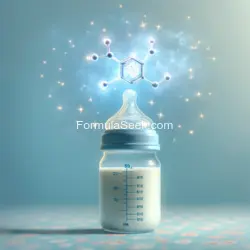
Sodium selenate and infant formula
Sodium selenate is a compound that has garnered attention for its role in human health and nutrition, particularly when it comes to the formulation of infant foods. Understanding what sodium selenate is and why it's added to infant formula can provide insights into its importance in early childhood development.
What is Sodium Selenate?
Sodium selenate is a form of selenium, a trace element essential for human health. In its pure form, it's a colorless solid. As a compound, it provides a highly bioavailable form of selenium. The body requires selenium to produce specific enzymes, which play critical roles in DNA synthesis, protection from oxidative damage, and regulating thyroid function.
The Role of Selenium in the Body
Selenium is vital for the human body, even in small amounts. It contributes to antioxidant activity, helping to reduce the damage caused by free radicals — unstable atoms that can cause illness and aging. Selenium is also crucial for the immune system, producing white blood cells and ensuring proper immune response. Additionally, it plays a role in maintaining a healthy metabolism.
Why is Sodium Selenate Added to Infant Formula?
Infants, like adults, require a certain amount of selenium for proper development. However, their bodies are not as efficient at storing selenium, making a consistent dietary source essential. Here's why sodium selenate is commonly added to infant formula:
Consistent Selenium Source: Breast milk provides natural selenium, but the amount can vary based on the mother's diet. Formula with sodium selenate ensures a consistent and reliable source of this nutrient.
Supports Immune Function: Infants have developing immune systems. Adequate selenium supports the growth and proper function of immune cells.
Thyroid Regulation: Selenium is necessary for producing thyroid hormones, which are crucial for infant growth and development.
Antioxidant Protection: Infants are particularly susceptible to oxidative stress. Selenium's role in antioxidant defense helps protect their developing bodies.
Safety and Regulation
While sodium selenate is beneficial, it's only required in very small amounts. Excessive intake can be harmful. Regulatory bodies like the U.S. Food and Drug Administration (FDA) and the European Food Safety Authority (EFSA) have set guidelines for the maximum allowable amounts in infant formula to ensure safety and efficacy.
Conclusion
Sodium selenate is crucial in ensuring that infant formulas meet the nutritional needs of babies who are not breastfed. Its addition helps provide a necessary nutrient that supports overall health and development. As with all nutrients, it's about balance and ensuring that infants receive the right amount for optimal health. Parents should always consult with healthcare providers to understand the best dietary choices for their children's unique needs.



